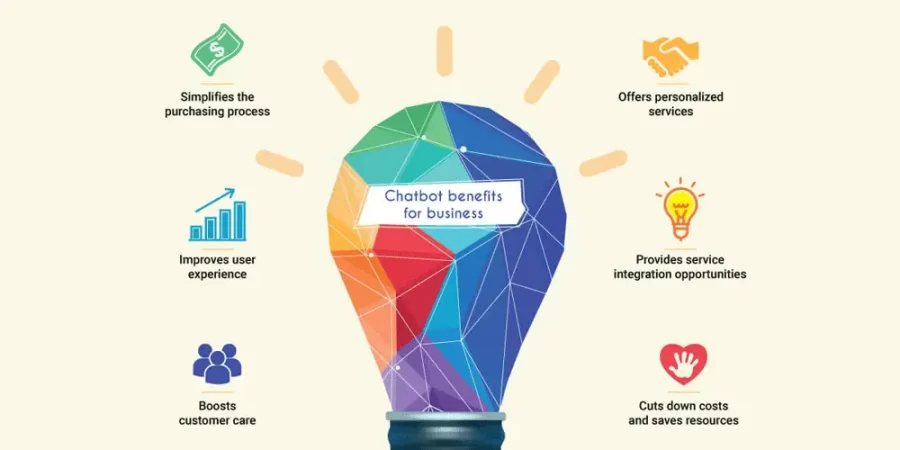Beginners Guide: How To Use Chatbots And Messaging Apps For Customer Service And Marketing?
Chatbots and messaging apps have become increasingly popular in recent years, and for good reason. These tools allow businesses to provide quick, efficient customer service and engage with customers in new and exciting ways. In this article, we will discuss how businesses can use chatbots and messaging apps for customer service and marketing.
First, let’s discuss chatbots. A chatbot is a computer program that simulates human conversation. They can be integrated into messaging apps, websites, and mobile apps. Chatbots are designed to help customers find the information they need quickly and easily. They can also be used to automate repetitive tasks, such as booking appointments or answering frequently asked questions.
To use a chatbot for customer service, businesses can create a bot that is specifically designed to answer common customer questions. For example, a clothing retailer could create a bot that can help customers find products, track their orders, and provide information on return policies. The bot can also be programmed to route customers to a human representative if their question is too complex for the bot to handle.
Another way businesses can use chatbots for customer service is by creating a bot that can handle simple complaints or issues. For example, a hotel could create a bot that can help guests with check-in and check-out procedures, room service, and other common issues. This not only saves time for the guest, but also allows hotel staff to focus on more pressing matters.
Chatbots can also be used for marketing. For example, businesses can create a bot that sends personalized promotions and deals to customers based on their browsing history or purchase history. This not only helps to increase sales, but also improves the customer experience by providing relevant and useful information.
In addition to chatbots, messaging apps can also be used for customer service and marketing. Many businesses now have a presence on messaging apps such as Facebook Messenger, WhatsApp, and WeChat. By having a presence on these apps, businesses can engage with customers in real-time, providing quick and efficient customer service.
For example, a restaurant could use a messaging app to take reservations, provide menu information, and answer questions about specials and promotions. This not only saves time for the customer, but also allows the restaurant to fill more tables.
Another way businesses can use messaging apps for marketing is by sending out personalized messages to customers. For example, a clothing store could send a message to a customer who has recently browsed a specific product, offering a discount on that item. This not only helps to increase sales, but also improves the customer experience by providing relevant and useful information.
In addition, businesses can use messaging apps to create a sense of community among customers. For example, a fashion brand could create a group chat on WhatsApp where customers can share fashion tips and ideas, creating a sense of community among like-minded individuals.
Chatbots and messaging apps can be powerful tools for businesses looking to improve customer service and engage with customers in new and exciting ways. By using chatbots for customer service and marketing, businesses can save time and resources while providing a better customer experience. Additionally, messaging apps offer real-time engagement and personalized communication with customers, which is a great way to build relationships and increase brand loyalty.
It is important to note that when using chatbots and messaging apps for customer service and marketing, businesses must be transparent about the fact that they are interacting with a bot or automated system. This can be done by clearly labeling the bot or messaging service, and providing an option for customers to speak with a human representative if needed.
Another important aspect to consider when using chatbots and messaging apps is data privacy and security. Businesses must ensure that they are in compliance with all relevant data privacy laws and regulations, and that they have proper security measures in place to protect customer data.
When designing a chatbot or messaging service for customer service or marketing, businesses should also consider the user experience. The interface should be easy to use and understand, and the bot or messaging service should be able to provide the information or assistance that the customer is looking for quickly and efficiently.
In addition to chatbots and messaging apps, businesses can also use other forms of artificial intelligence (AI) such as natural language processing (NLP) and machine learning (ML) to improve their customer service and marketing efforts. NLP allows chatbots and messaging services to understand and respond to human language, while ML allows them to learn and adapt over time based on customer interactions.
Businesses can also integrate chatbots and messaging apps with other systems and platforms such as customer relationship management (CRM) software, e-commerce platforms, and social media to create a seamless experience for customers.
Here are some detailed bullet points that summarize the key points discussed in the article about how to use chatbots and messaging apps for customer service and marketing:
- Chatbots are computer programs that simulate human conversation, they can be integrated into messaging apps, websites, and mobile apps and are designed to help customers find information quickly and easily.
- Chatbots can be used for customer service by creating a bot that can answer common customer questions, automate repetitive tasks, and route customers to a human representative if needed.
- Chatbots can also be used for marketing by sending personalized promotions and deals to customers based on browsing and purchase history.
- Messaging apps such as Facebook Messenger, WhatsApp, and WeChat can also be used for customer service and marketing. They allow businesses to engage with customers in real-time, take reservations, provide menu information, answer questions, and send personalized messages.
- It’s important for businesses to be transparent about the fact that they are interacting with a bot or automated system and provide an option for customers to speak with a human representative if needed.
- Businesses must ensure that they are in compliance with all relevant data privacy laws and regulations, and that they have proper security measures in place to protect customer data.
- The user experience should be a key consideration when designing a chatbot or messaging service for customer service or marketing.
- Businesses can also use other forms of AI such as NLP and ML to improve their customer service and marketing efforts.
- Chatbots and messaging apps can be integrated with other systems and platforms such as CRM software, e-commerce platforms, and social media to create a seamless experience for customers.
- Chatbots can be used to handle simple complaints or issues, allowing the human staff to focus on more pressing matters.
- By having a presence on messaging apps such as WhatsApp, businesses can create a sense of community among customers, for example, a fashion brand can create a group chat on WhatsApp where customers can share fashion tips and ideas.
- It’s important to consider data privacy and security when using chatbots and messaging apps for customer service and marketing.
- To improve the customer experience and increase sales, businesses can create chatbots that sends personalized promotions and deals to customers based on their browsing history or purchase history.
- Using messaging apps for customer service allows businesses to provide quick and efficient customer service, and fill more tables, for example, a restaurant can use a messaging app to take reservations, provide menu information, and answer questions about specials and promotions.
- Chatbots and messaging apps can be integrated with other systems such as CRM software, e-commerce platforms, and social media to create a seamless experience for customers, for example, a customer can initiate a conversation on a social media platform and then continue the conversation on a messaging app.
- Chatbots and messaging apps can be used to automate repetitive tasks, for example, a clothing retailer can create a bot that can help customers find products, track their orders, and provide information on return policies.
- To improve the customer service, businesses can create a bot that can handle simple complaints or issues, allowing the human staff to focus on more pressing matters.
- To increase brand loyalty, businesses can use messaging apps to send out personalized messages to customers, for example, a clothing store could send a message to a customer who has recently browsed a specific product, offering a discount on that item.
In conclusion, chatbots and messaging apps are powerful tools that businesses can use to improve customer service and marketing efforts. Chatbots can be used to answer common customer questions, automate repetitive tasks, handle complaints and issues, and send personalized promotions and deals.
Messaging apps allow businesses to engage with customers in real-time, take reservations, provide menu information, answer questions and send personalized messages. It’s important for businesses to be transparent about their use of bots, ensure data privacy and security, design the chatbot and messaging service with user experience in mind and integrate them with other systems and platforms to create a seamless experience for customers. Additionally, businesses can use other forms of AI such as NLP and ML to improve their customer service and marketing efforts.





Leave a Reply